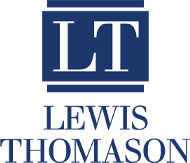Article below written by Justin Joy and in December’s TBA Connect Business Law Section.
Recent FTC Enforcement Action Gives 1-Star Rating for Misleading Consumer Reviews, Provides Reminder on New Rule for Businesses
Consumer reviews and testimonials play a significant role in today’s marketplace. While individual consumers may place varying degrees of importance on these reviews, it’s clear that they can greatly influence purchasing decisions. Though most people know that some reviews can be fake or biased, indicators suggests that over 90% of consumers read at least one online review prior to making a purchase. Additionally, most consumers read at least three reviews as part of their decision-making process. According to one projection, the global market for consumer experience management services is expected to grow from over $13 billion in 2023 to nearly $50 billion over the next decade.
Businesses need to be mindful about how they handle customer reviews and testimonials, whether they choose to manage them in-house or hire a third party. A recent enforcement action by the Federal Trade Commission (FTC) highlights its active role in this area and serves as a reminder about the FTC’s new regulations concerning related business practices.
On Nov. 6, 2024, the FTC announced that it had charged that GGL Projects Inc., d/b/a Sitejabber, a company offering AI-enabled reputation and consumer review management services to online businesses, had deceived consumers with its business practices. Specifically, the FTC accused Sitejabber of misleading consumers by collecting ratings and reviews at the time of purchase, before customers had a chance to experience the products or services. These premature reviews were used to inflate the average ratings and review counts on Sitejabber’s platform, falsely suggesting high customer satisfaction. Sitejabber also provided tools for clients to publish these misleading reviews on their own websites. The FTC’s proposed order prohibits Sitejabber from misrepresenting customer ratings and reviews and from assisting others in doing so. This action is part of the FTC’s broader effort to combat deception in the review ecosystem.
In August 2024, the FTC published the Final Rule on the Use of Consumer Reviews and Testimonials, a/k/a The Consumer Reviews and Testimonials Rule, intended to combat fake reviews and testimonials by prohibiting their sale or purchase.[1] FTC Chair Lina M. Khan emphasized that fake reviews waste resources, mislead consumers and harm honest business competitors. The rule aims to protect consumers and ensure fair competition. The rule prohibits fake or false reviews or testimonials — including those generated by AI — by consumers or celebrities, buying positive or negative reviews, and insider reviews without disclosure. It also bans misrepresentations regarding company-controlled review sites, suppressing negative reviews through threats and misusing fake social media indicators such as bot-generated followers or views. The rule addresses deceptive practices by businesses and strengthens the FTC’s enforcement capabilities in this area.
While the alleged conduct that is the subject of this proposed order against Sitejabber was not claimed to have violated The Consumer Reviews and Testimonials Rule (and the alleged conduct also occurred before the publication of the rule), this enforcement action serves as further notice of the FTC’s enforcement interest in this realm. With AI-enabled tools, the problem of improperly collecting and publishing consumer reviews can be accelerated and amplified, and businesses can quickly run afoul of the FTC’s new rule. Businesses should monitor and manage their consumer reviews and testimonials — whether done internally or with the help of a third party — within the scope of the FTC’s new regulations governing this area.
[1]. The final rule became effective on October 21, 2024, 60 days after publication. Agency guidance in the form of a Q&A was made available the following month.





